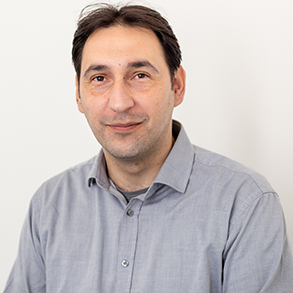 Dr George Xydis
Dr George Xydis George Xydis had the opportunity to work in the wind sector together with developers, utilities, constructors, universities, and research institutes. He holds a PhD in Engineering from National Technical University of Athens, and a degree in Mechanical Engineering from Aristotle University of Thessaloniki. He worked as a Wind Projects Development Coordinator at Iberdrola Renewables, as a Wind Project Developer at Vector Hellenic Windfarms S.A., and as a Researcher (eq. Assistant Professor level) in the Center for Electric Power and Energy, Department of Electrical Engineering at Technical University of Denmark. He used to collaborate with institutes, universities and various SMEs in the fields of Wind Resource Assessment, Energy Resources Optimization, Exergy Analysis, Spatial Planning, and Energy Demand. George is now an Associate Professor at the Department of Business Development and Technology, Aarhus University and serves as an Associate Editor in Frontiers in Energy Systems & Policy and in Energy & Environment, SAGE Publishers.
The development of a hydrogen economy in the transportation sector is nowadays hindered by the principal barriers arising from the lack of adequate infrastructure and hydrogen based vehicles. This phenomenon can be characterised as the “chicken and egg” riddle, suggesting the two-way relationship between hydrogen infrastructure and H2 vehicles development. The literature review shows that investments in hydrogen refuelling stations are profitable if the fuel cell vehicles number will grow, and on the other hand, fuel cell vehicles market will be hindered if there is no adequate hydrogen infrastructure development.
The potential of small-scale autonomous hydrogen refuelling stations with onsite production via a water electrolysis apparatus supplied by a small wind turbine suitable for light-duty vehicles such as fuel cell bicycles has been investigated. In this context, an area near urban environment with good wind resource potential located in the region of central Jutland in Denmark is selected.
For supporting the daily hydrogen refuelling demand of the fuel cell electric bicycles, which is estimated to approximately 6 kg, it is calculated that a 50 kW wind turbine should be installed in order to supply an alkaline electrolyser of 70 kW for producing hydrogen.
From a financial point of view, it is estimated that the capital investment cost would reach approximately 250,000 €. By assuming a lifetime of the project of 20 years and an equity-bank loan ratio of 50/50, the cost of H2 fuel without any subsidy is calculated to a minimum price of 50.2 €-kgH2 in order to have a positive IRR.
Ultimately, this study aims at delivering a feasibility analysis of a small scale H2 refuelling fuel cell bicycles’ station in order to provide initiatives to investors for the implementation of such schemes in urban environments where low air quality and high traffic problems are intense.